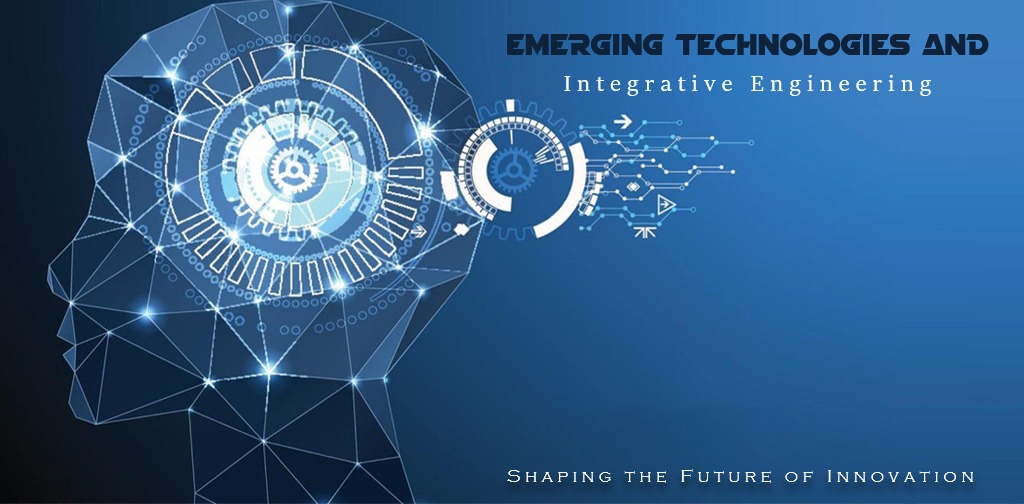Introduction
As the world rapidly
advances, emerging technologies and integrative engineering practices are at
the forefront of transforming industries, improving efficiencies, and
addressing complex global challenges. At Guinness Press, we are passionate
about exploring these cutting-edge developments and their implications for a
sustainable and innovative future. This blog delves into the latest emerging
technologies and the integrative engineering approaches that are reshaping our
world.
The Rise of Emerging Technologies
Emerging technologies
are novel innovations that have the potential to revolutionize industries and
society. These technologies are often in the early stages of development but
show promise in offering significant advancements and solutions to current
problems.
Key Emerging Technologies
1. Artificial
Intelligence (AI) and Machine Learning (ML):
AI and ML are
transforming how we process information, make decisions, and automate tasks. AI
systems can analyze vast amounts of data, recognize patterns, and make
predictions, driving innovation in fields such as healthcare, finance, and
transportation.
Example
Application:
In healthcare, AI-powered diagnostic tools can analyze medical images to detect
diseases early, improving patient outcomes and reducing healthcare costs.
2. Internet
of Things (IoT):
IoT involves
connecting everyday devices to the internet, enabling them to collect, share,
and analyze data. This technology is creating smarter homes, cities, and
industries, enhancing efficiency and convenience.
Example
Application:
Smart cities use IoT devices to manage resources such as water and energy more
efficiently, reduce traffic congestion, and improve public safety.
3. Renewable
Energy Technologies:
Advancements in
renewable energy technologies, including solar, wind, and bioenergy, are
crucial for reducing reliance on fossil fuels and mitigating climate change.
These technologies are becoming more efficient, cost-effective, and widespread.
Example
Application:
Solar panels with higher efficiency rates and energy storage systems are
enabling more homes and businesses to transition to renewable energy,
decreasing carbon footprints.
4.
Biotechnology:
Biotechnology
leverages biological processes for industrial and other purposes, including
genetic engineering, biofuels, and pharmaceuticals. Innovations in this field
have significant implications for healthcare, agriculture, and environmental
sustainability.
Example
Application:
CRISPR technology allows for precise gene editing, opening possibilities for
curing genetic diseases, improving crop resilience, and developing new
therapeutics.
5. Advanced
Materials:
The development of
advanced materials, such as graphene, nanomaterials, and smart materials, is
leading to breakthroughs in various industries. These materials exhibit unique
properties that can enhance performance and sustainability.
Example
Application:
Graphene, known for its strength and conductivity, is being explored for
applications in electronics, energy storage, and even water filtration.
Integrative Engineering: Bridging Disciplines for Holistic Solutions
Integrative
engineering involves the collaboration of multiple engineering disciplines to
address complex problems and create innovative solutions. This approach
recognizes that real-world challenges often span various fields and require a
holistic perspective.
Principles of Integrative Engineering
1.
Interdisciplinary Collaboration:
Integrative engineering brings together experts from different disciplines to
leverage diverse knowledge and skills. This collaborative approach fosters
creativity and innovation.
2. Systems
Thinking:
Engineers consider the entire system and its interconnections rather than
focusing on individual components. This helps identify potential impacts and
optimize overall performance.
3.
Sustainability:
Integrative engineering emphasizes sustainable practices, aiming to create
solutions that are environmentally friendly, economically viable, and socially
responsible.
4.
Human-Centered Design:
Solutions are designed with the end-user in mind, ensuring that technologies
and systems meet the needs and preferences of people.
Innovative Integrative Engineering Projects
1. Smart
Grids:
Smart grids integrate
renewable energy sources, IoT, and AI to create efficient, reliable, and
resilient energy systems. These grids can manage energy supply and demand in
real-time, reduce energy waste, and enhance grid stability.
Example
Project:
The integration of solar panels, wind turbines, and energy storage with smart
grid technology in Denmark has created one of the most reliable and sustainable
energy systems in the world.
2.
Sustainable Urban Development:
Integrative
engineering approaches in urban planning create sustainable cities that enhance
the quality of life for residents while minimizing environmental impact. This
includes green buildings, efficient public transportation, and smart
infrastructure.
Example
Project:
The development of Masdar City in Abu Dhabi, a zero-carbon, zero-waste city,
exemplifies integrative engineering in action. The city incorporates renewable
energy, green architecture, and smart technologies.
3. Autonomous
Vehicles:
The development of
autonomous vehicles combines mechanical engineering, AI, sensor technology, and
human factors engineering. These vehicles have the potential to improve road
safety, reduce traffic congestion, and lower emissions.
Example
Project:
Google's Waymo project integrates AI, machine learning, advanced sensors, and
user experience design to create autonomous vehicles that can navigate complex
urban environments.
Challenges and Opportunities
While emerging
technologies and integrative engineering offer immense potential, they also
present challenges. These include the need for regulatory frameworks, ethical
considerations, and the integration of new technologies with existing systems.
However, the opportunities for innovation, sustainability, and improved quality
of life are vast.
The Role of Education and Policy
Education and policy
play crucial roles in advancing emerging technologies and integrative
engineering. Educational institutions must equip future engineers with
interdisciplinary skills and knowledge. Policymakers must create supportive
environments that encourage innovation, protect public interests, and promote
sustainable development.
Conclusion
Emerging technologies
and integrative engineering are key to addressing the complex challenges of the
21st century. By embracing interdisciplinary collaboration, systems thinking,
and sustainable practices, we can create innovative solutions that drive
progress and improve lives. At Guinness Press, we are committed to exploring
and promoting these advancements, contributing to a future where technology and
sustainability go hand in hand.
